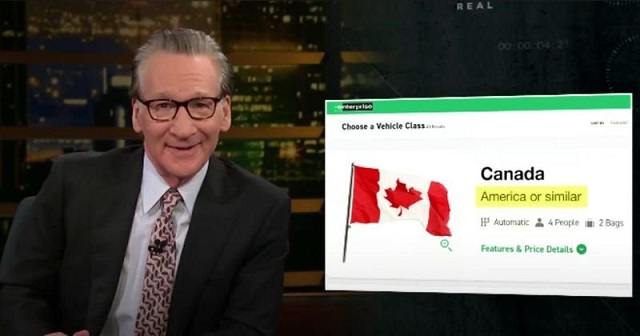Business
Retail Industry Slashed by Covid-19

How malls and stores across our city are taking measures to flatten the curve
Since The City of Calgary declared a state of emergency on Sunday March 15th, almost
every sector has been affected. This order brought immediate closures to all city owned
recreational facilities, the public library and any YMCA facilities including the Repsol
Centre sports complex.
Following this declaration, franchises and stores across our city have seen temporary
closures to combat any further spread of the virus. We can assume all of us are aware
of the major detriment this will have on our economy. Not often is there a communal
thought given to those who have welcomed our money for products or services.
The country wide chain of malls, Cadillac Fairview has reported to reduce their opening
hours and drastically improve cleaning. If we keep in mind that Cadillac Fairview owns
over 70 malls in 9 provinces, safe to say they will be hit hard. This is to say that tenants
are the ones to be hit the hardest.
How many times have you said the word “Social Distancing” in the last few weeks. This
comes to those as tenants or stand alone businesses in our city being directly affected.
Apple reports: “We will be closing all of our retail stores outside of Greater China until
March 27”
The Hudson’s Bay company stated on facebook that they are temporarily closing all
stores nationwide. Also stating “stores will remain closed for two weeks, and reopening
will be assessed at that time. We will continue to serve customers through thebay.com”.
A letter from the CEO of the Canadian Tire Corporation stated: “To encourage social
distancing, we are limiting the hours of operation at certain banners, such as at our
Mark’s and SportChek stores. Please visit their websites, or check with your local store,
for updated hours of operation. At this time, we plan to maintain standard hours at
Canadian Tire stores, allowing us to continue providing the essentials that Canadians
need”
Cineplex Inc. reports “it will be temporarily closing its network of theatres and
location-based entertainment venues across Canada starting March 16, 2020, through
to April 2, 2020”. You can read the full press release here – Press Release.
You may be concerned about what this means for grocery stores. We have all seen
photos and videos of empty shelves across multiple chains, but what are they doing to
drive down the chance of contracting the virus? Check out what Calgary Co-Op is doing
to proactively care for their customers – Calgary Co-Op Covid-19 Measures.
As some may not be aware of what is happening across the globe, one thing that struck
home for St. Patrick’s day. Every bar across the country of Ireland is closed for two
weeks, which has never happened in the history of the country. Those poor souls.
It is clear that there is a trend for other retailers following suit. There is no way to know
how the economy will be hit at this time. Sure to say that those panic buying and
stockpiling toilet paper may be ahead of the curve, but the severity of the issue will
continue to play out in the coming weeks.
A lot of us will be fearful of their own health and safety in a time like this. The best way
to keep yourself up to date on information is to follow updates from the World Health
Organisation. Another trusted source for those curious about where our province lies in
the spectrum of outbreak, Alberta Health Services will be reporting all new findings in
the province. They have created an online screening section of their website for those
who feel that may be under the weather. You can find the self screening application
here – Covid-19 Self Assessment.
Click here for more stories from Todayville Calgary.
Business
Taxpayers criticize Trudeau and Ford for Honda deal

From the Canadian Taxpayers Federation
Author: Jay Goldberg
The Canadian Taxpayers Federation is criticizing the Trudeau and Ford governments to for giving $5 billion to the Honda Motor Company.
“The Trudeau and Ford governments are giving billions to yet another multinational corporation and leaving middle-class Canadians to pay for it,” said Jay Goldberg, CTF Ontario Director. “Prime Minister Justin Trudeau is sending small businesses bigger a bill with his capital gains tax hike and now he’s handing out billions more in corporate welfare to a huge multinational.
“This announcement is fundamentally unfair to taxpayers.”
The Trudeau government is giving Honda $2.5 billion. The Ford government announced an additional $2.5 billion subsidies for Honda.
The federal and provincial governments claim this new deal will create 1,000 new jobs, according to media reports. Even if that’s true, the handout will cost taxpayers $5 million per job. And according to Globe and Mail investigation, the government doesn’t even have a proper process in place to track whether promised jobs are actually created.
The Parliamentary Budget Officer has also called into question the government’s claims when it made similar multi-billion-dollar handouts to other multinational corporations.
“The break-even timeline for the $28.2 billion in production subsidies announced for Stellantis-LGES and Volkswagen is estimated to be 20 years, significantly longer than the government’s estimate of a payback within five years for Volkswagen,” wrote the Parliamentary Budget Officer said.
“If politicians want to grow the economy, they should cut taxes and red tape and cancel the corporate welfare,” said Franco Terrazzano, CTF Federal Director. “Just days ago, Trudeau said he wants the rich to pay more, so he should make rich multinational corporations pay for their own factories.”
Business
UN plastics plans are unscientific and unrealistic

News release from the Coalition of Concerned Manufacturers and Businesses of Canada
“We must focus on practical solutions and upgrading our recycling infrastructure, not ridiculous restrictions that will harm our health care system, sanitary food supply, increase costs and endanger Canadians’ safety, among other downsides.”
This week Ottawa welcomes 4,000 delegates from the United Nations to discuss how they will oversee a reduction and even possible elimination of plastics from our lives. The key problem is no one has ever figured out how they will replace this essential component of our modern economy and society. The Coalition of Concerned Manufacturers and Businesses of Canada (CCMBC) has launched an information campaign to discuss the realities of plastic, how it contributes massively to our society and the foolishness of those who think plastics can be eliminated or greatly reduced without creating serious problems for key industries such as health care, sanitary food provision, many essential consumer products and safety/protective equipment, among others. CCMBC President Catherine Swift said “The key goal should be to keep plastics in the economy and out of the environment, not eliminate many valuable and irreplaceable plastic items. The plastics and petrochemical industries represent about 300,000 jobs and tens of billions contribution to GDP in Canada, and are on a growth trend.”
The UN campaign to ban plastics to date has been thwarted by reality and facts. UN efforts to eliminate plastics began in 2017, motivated by such terrible images as rivers with massive amounts of floating plastic and animals suffering from negative effects of plastic materials. Although these images were dramatic and disturbing, they do not represent the big picture of what is really happening and do not take into account the many ways plastics are hugely positive elements of modern society. Swift added “Furthermore, Canada is not one of the problem countries with respect to plastics waste. Developing countries are the main culprits and any solution must involve helping the leading plastics polluters find workable solutions and better recycling technology and practices.”
The main goal of plastic is to preserve and protect. Can you imagine health care without sanitary, flexible, irreplaceable and recyclable plastic products? How would we keep our food fresh, clean and healthy without plastic wraps and packaging? Plastic replaces many heavier and less durable materials in so many consumer products too numerous to count. Plastics help the environment by reducing food waste, replacing heavier materials in automobiles and other products that make them more energy-efficient. Many plastics are infinitely recyclable and innovations are taking place to improve them constantly. What is also less known is that most of the replacements for plastics are more expensive and actually worse for the environment.
Swift stated “Environment Minister Steven Guilbeault has been convinced by the superficial arguments that plastics are always bad despite the facts. He has pursued a campaign against all plastics as a result, without factoring in the reality of the immense value of plastic products and that nothing can replace their many attributes. Fortunately, the Canadian Federal court overturned his absurd ban on a number of plastic products on the basis that it was unscientific, impractical and impinged upon provincial jurisdiction.” Sadly, Guilbeault and his Liberal cohorts plan to appeal this legal decision despite its common-sense conclusions. Opinion polls of Canadians show that a strong majority would prefer this government abandon its plastics crusade at this point, but history shows these Liberals prefer pursuing their unrealistic and costly ideologies instead of policies that Canadians support.
The bottom line is that plastics are an essential part of our modern society and opposition has been based on erroneous premises and ill-informed environmentalist claims. Swift concluded “Canada’s record on plastics is one of the best in the world. This doesn’t mean the status quo is sufficient, but we must focus on practical solutions and upgrading our recycling infrastructure, not ridiculous restrictions that will harm our health care system, sanitary food supply, increase costs and endanger Canadians’ safety, among other downsides.” The current Liberal government approach is one that has no basis in fact or science and emphasizes virtue-signaling over tangible and measurable results. Swift noted “The UN’s original founding purpose after World War II was to prevent another world war. Given our fractious international climate, they should stick to their original goal instead of promoting social justice warrior causes that are unhelpful and expensive.”
The CCMBC was formed in 2016 with a mandate to advocate for proactive and innovative policies that are conducive to manufacturing and business retention and safeguarding job growth in Canada.
SOURCE Coalition of Concerned Manufacturers and Businesses of Canada
-

 Health2 days ago
Health2 days agoTransgender activists are threatening the author of scathing UK report on child ‘sex changes’
-

 Alberta18 hours ago
Alberta18 hours agoAlberta rejects unconstitutional cap on plastic production
-

 conflict2 days ago
conflict2 days agoCol. Douglas Macgregor torches Trump over support for bill funding wars in Ukraine and Israel
-

 Alberta2 days ago
Alberta2 days agoRed Deer Doctor critical of Alberta’s COVID response to submit report to Danielle Smith this May
-

 Censorship Industrial Complex8 hours ago
Censorship Industrial Complex8 hours agoJordan Peterson, Canadian lawyer warn of ‘totalitarian’ impact of Trudeau’s ‘Online Harms’ bill
-

 Alberta2 days ago
Alberta2 days agoAlberta’s baby name superstar steals the show again
-

 Censorship Industrial Complex2 days ago
Censorship Industrial Complex2 days agoNow We Are Supposed to Cheer Government Surveillance?
-

 Fraser Institute2 days ago
Fraser Institute2 days agoBill Maher is right about Canadian health care








